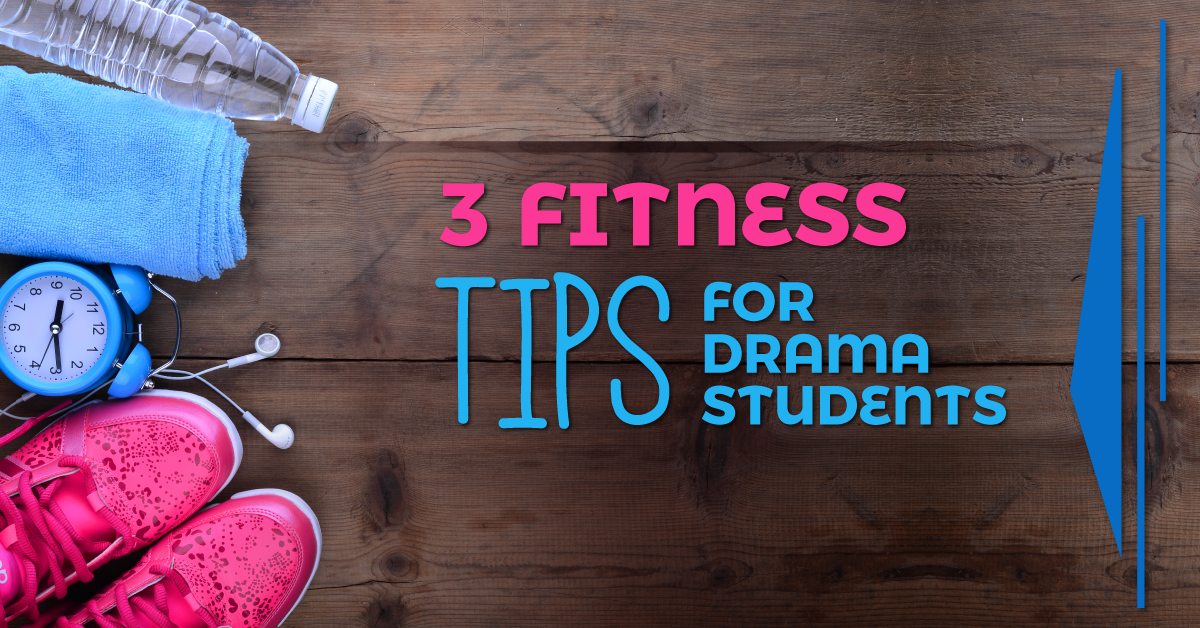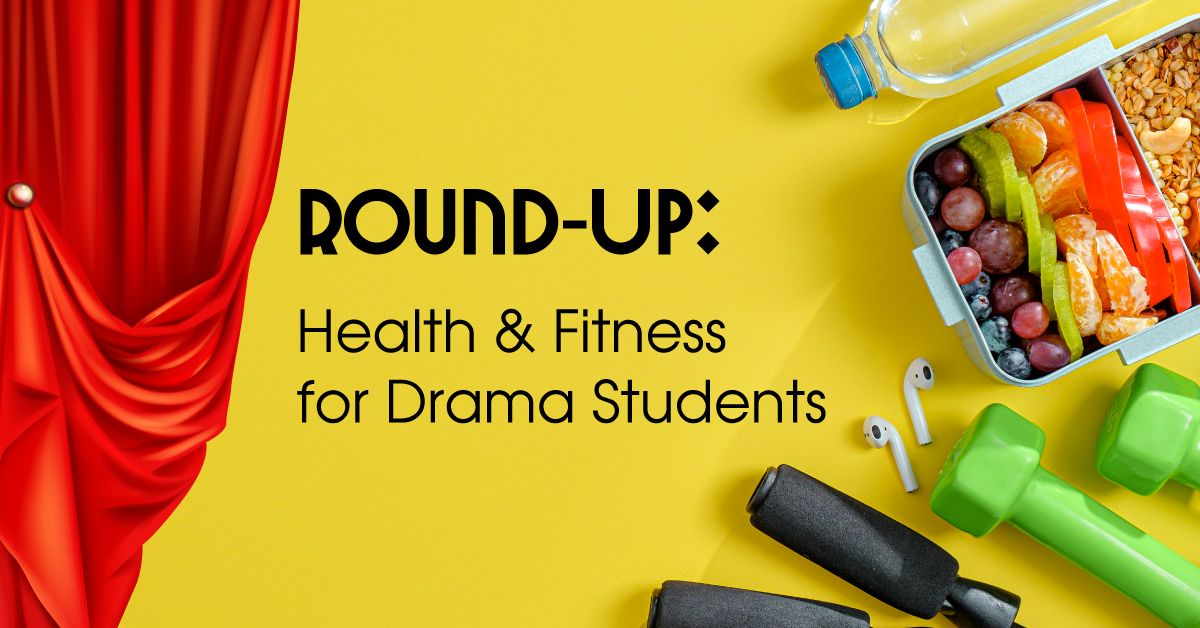3 Fitness Tips for Drama Students
Fitness? Hey, this is supposed to be drama class, not gym class! I’m not a jock! I’m terrible at sports! Are you telling me I need to lose weight?
Fitness is so important for drama students. Drama students need to be strong, both physically and mentally. Performing onstage and working backstage are demanding and require focus and endurance, whether students are dancing in the ensemble, building and painting sets, performing a monologue, running the spotlight, or calling the show from the booth. Being physically fit can help students with all of these tasks.
So how can teachers encourage their drama students to take an active role in developing their fitness? Here are three tips that will help.
1 .What are the benefits for your students?
Students need to know what’s in it for them. Why bother working out and exercising? What’s the point? They’re already so busy, so how can they cram another thing into their schedules? Share these benefits with your students, and have them come up with additional ideas.
(A) Physical benefits – increased energy, better ability to sleep, improved stamina and endurance, increased strength and flexibility.
In other words, being physically fit helps students with the physical tasks needed in drama class or in a production. They’ll be able to move more quickly, stand for longer periods of time, and recover after a taxing show more easily. They will notice improved breath control, so singing and dancing will be easier.
(B) Mental benefits – growth in confidence and focus, sense of pride in completing a challenging task, stress reduction, and learning new skills helps them to plan ahead and stick to a schedule.
What? Being fit makes drama students smarter and more confident? Yes! They’ll be better able to deal with the stresses of working on a production and balancing their busy lives. They’ll feel good about themselves when they are able to get through a demanding piece of choreography without gasping for air. It’s also well known that doing physical activities releases endorphins – the brain’s “feel good” chemicals – which will translate to improved moods and a more positive attitude. Who doesn’t want that in their classroom?
(C) Social benefits – bonding with friends and fellow classmates/cast mates (when fitness is pursued in pairs/groups), opportunities to meet new people.
Encourage students to pursue fitness goals with their friends. It’s easier to keep each other accountable, and it can be a whole lot of fun being active together. Engaging in physical activity is a great way for students to bond as a group.
Note: While a focus on physical fitness may also involve changes to the body (such as toning or weight loss), this is not the focus. When discussing fitness, students should not feel that they have to lose weight, get toned, or change their body type in order to get roles or otherwise succeed in theatre. Fitness comes in all shapes and sizes. Focus on choices that help students to feel healthy, strong, and well, rather than on outward appearance.
2. Fitness should be FUN!
This is an important point – fitness should be fun! Yes, it’s hard work, but if students are frustrated and resentful in their pursuit of fitness they are more likely to quit. Sometimes exercise and fitness activities have a more sports-oriented focus that isn’t super-engaging for drama students. So have your students brainstorm a list of fun and different fitness activities that they can try, and that appeal to their theatrical interests. Encourage them to think of creative or unusual ways of incorporating fitness into their daily routines. See if they can put a “drama class spin” on the suggestions, and have them indicate how the activities will specifically help them improve in the drama classroom.
Here are some ideas to get them started:
- Get together with castmates to learn and/or rehearse choreography from a show, or even choreograph and perform their own dances.
- Walk, ride a bike, skateboard, or rollerblade to and from rehearsal.
- Play active video games such as Wii Fit or Just Dance.
- Create a “Broadway Bootcamp” playlist to use while at the gym (of course, students then actually have to USE the playlist while working out!).
- Search for old cheesy workouts from the 80s and 90s on YouTube (like “Sweatin’ to the Oldies”) and try not to laugh too hard while joining in on the exercises (bonus points if they can find a Richard Simmons-esque costume to wear).
- Go on a cast and crew bonding trip to play paintball, laser tag, archery tag. Or try a ropes course.
Remember, the point is for students to suggest different activities that they would actually do! There’s no point in listing “run a marathon” if they wouldn’t actually do it.
3. Track progress, see results, and reflect on success.
Tracking their progress will give students concrete evidence that their hard work is paying off. Have students complete a simple fitness challenge – for example, over the next four weeks, students will complete 30 minutes of physical activity, at least three times per week. Students will record their activities in a log (see our giveaway for a free tracking template!) and reflect on how they feel and any benefits or changes they notice in themselves.
*Note: As always, stay safe in the classroom. Tell students that they should consult their physician or other health care professional before starting this or any fitness program to determine if it is right for their needs.
Kerry Hishon is a director, actor, writer, and stage combatant from London, Ontario, Canada. She blogs at www.kerryhishon.com.



